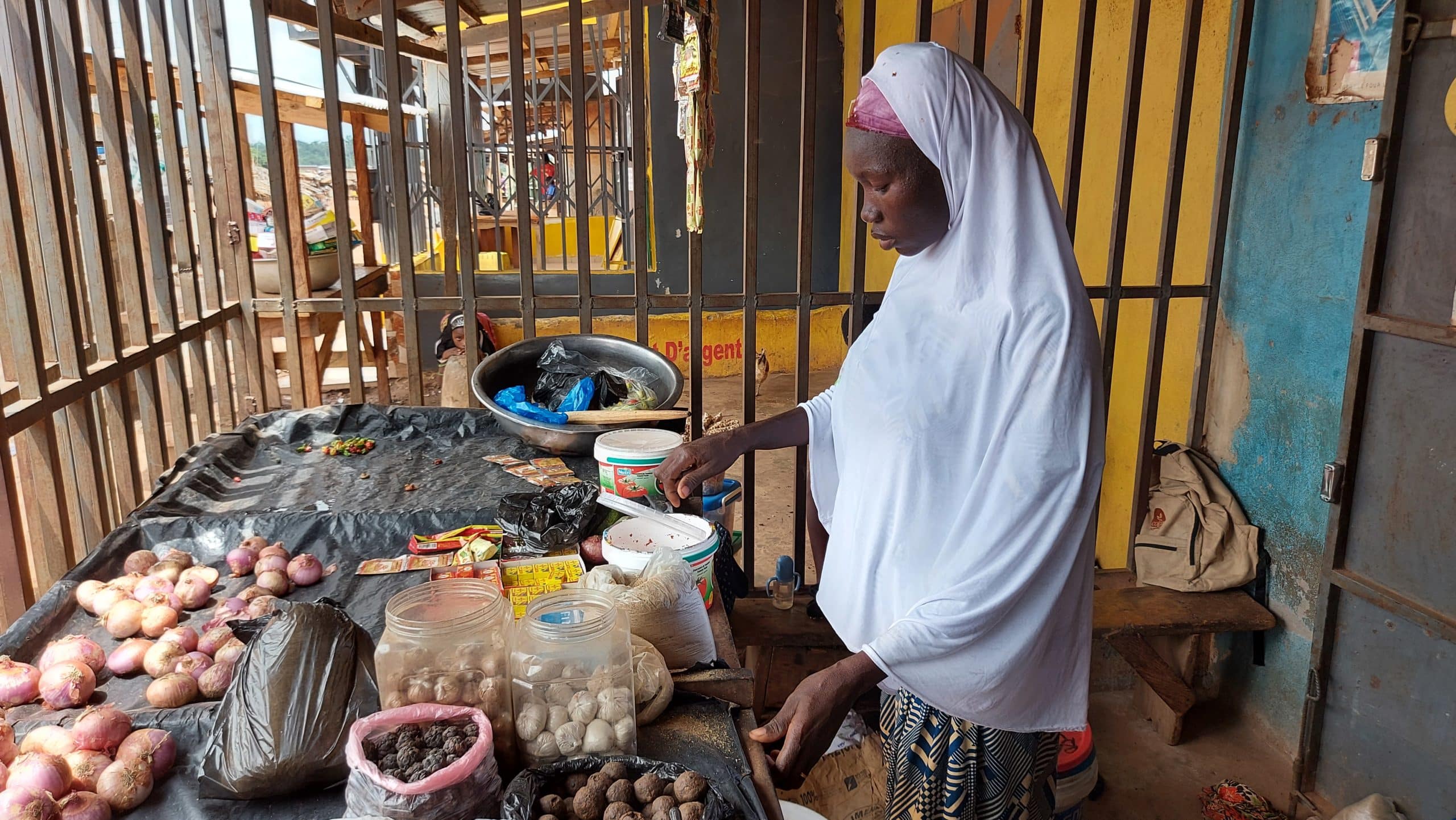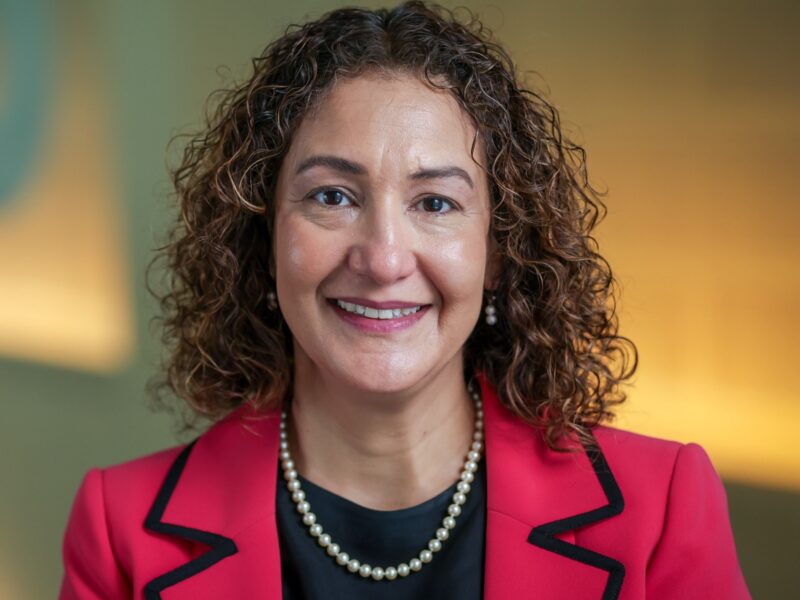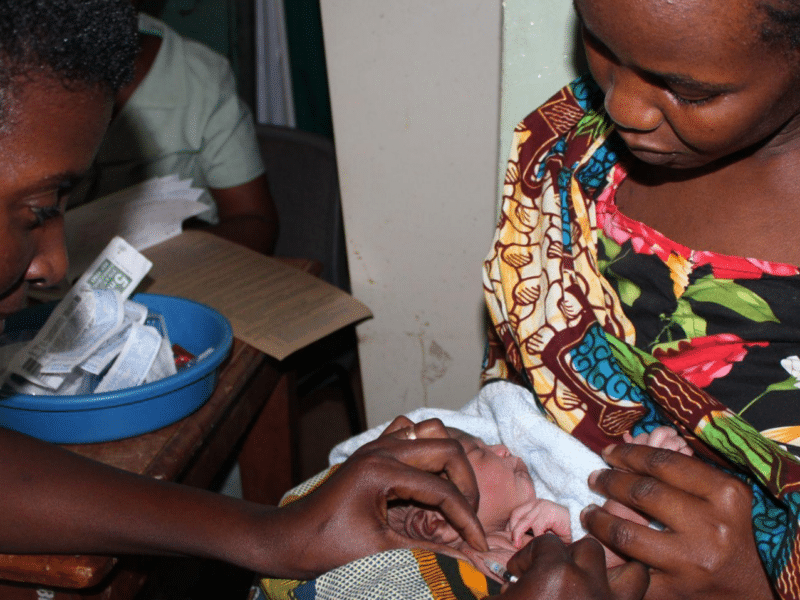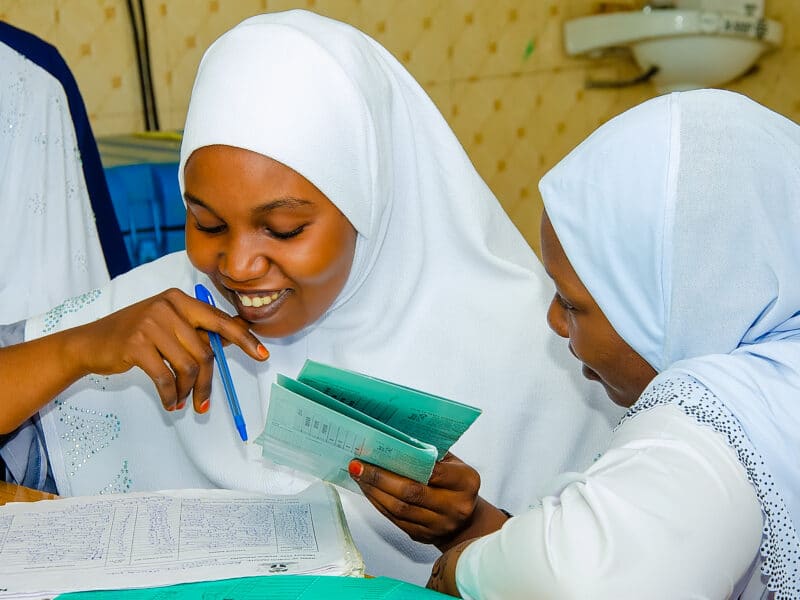Aminata, a mother of five in southern Côte d’Ivoire, expected her sixth pregnancy would be no different than the others. She would attend a few antenatal care appointments at her local health center, and with the help of a local midwife, she would give birth to a healthy baby.
This time, though, her pregnancy was different. After she gave birth at the hospital, her infant son Issouf wasn’t the only thing she brought home. She also brought home a diploma for attending all four recommended prenatal care appointments.
“For my other children, when I was pregnant, I would go to the hospital just to pick up my [prenatal] care booklet”— a 110-page document health care providers use to track pregnancy details— “but I didn’t always return for appointments,” Aminata says. She didn’t feel like she needed to. She didn’t feel sick.
“This time, when I went to get the booklet, the midwife congratulated me and told me that if I came to all my appointments, at the end of my pregnancy, I would ‘graduate’ and get a diploma of recognition,” Aminata says.
Not only do women like Aminata benefit from receiving the booklet, attending their appointments allows them to ask any questions they may have about their health, as well as to receive insecticide-treated mosquito nets and medicine designed to prevent malaria during pregnancy.
Together, the U.S. President’s Malaria Initiative, the Côte d’Ivoire Ministry of Health, the National Malaria Control Program and the Johns Hopkins Center for Communication Programs-led Breakthrough ACTION designed bright blue “Monitor My Pregnancy” checklists, which were tucked inside the booklets starting in 2019, to help midwives adhere to prenatal care guidelines and to increase attendance by pregnant women.
Statements like, “I discussed the importance of sleeping under a mosquito net,” “I received a mosquito net for free,” and “I discussed the importance of taking medication to prevent malaria in pregnancy and received three doses,” line the checklists alongside colorful, descriptive graphics.
Both delayed prenatal care and inadequate prenatal care are associated with poor infant health outcomes such as low birth weight and also with maternal mortality.
The checklist is more than just a list of important life-saving services to be received during pregnancy. It is essentially a pact between providers and patients to adhere to guidelines for services and counseling recommended by the World Health Organization and Ministry of Health for the prevention and treatment of malaria.
“After I gave birth at the hospital, the midwife gave me my diploma,” Aminata says. “I came home and showed it to my husband and my other kids. Everyone was happy.
Pregnant women aren’t the only ones who receive a certificate. Patients can award their health center with a certificate by giving feedback on the quality of prenatal services provided.
Marceline, a midwife, said she is grateful for the “Monitor My Pregnancy” checklists. “It helps us as providers to not forget details and offer important services,” Marceline says. “The women are happy because we explain to them that the checklist allows them to monitor their pregnancy themselves.”
Nearly half of pregnant women in Côte d’Ivoire do not complete the minimum four antenatal appointments that the WHO recommends. Sometimes, women do not regularly attend prenatal appointments because they perceive health providers as unwelcoming and unempathetic.
“Monitor My Pregnancy” checklists not only remind patients and providers of essential malaria-prevention services, but they also strengthen the relationships between midwives and their patients.
Aminata fondly remembers the midwives she met while pregnant with Issouf: “The midwives there were very nice to me. They explained everything I had to do to protect my baby, and I did as they said because we had become like friends. I can even call them at any time when I need advice, and they answer kindly.”
Initially deployed in eight health centers, the “Monitor My Pregnancy” checklist approach has now been scaled up across 339 health care providers from 285 health centers in 17 districts across Côte d’Ivoire, with more health centers planning to adopt the tool soon.
A version of this story appeared on the U.S. President’s Malaria Initiative website.





